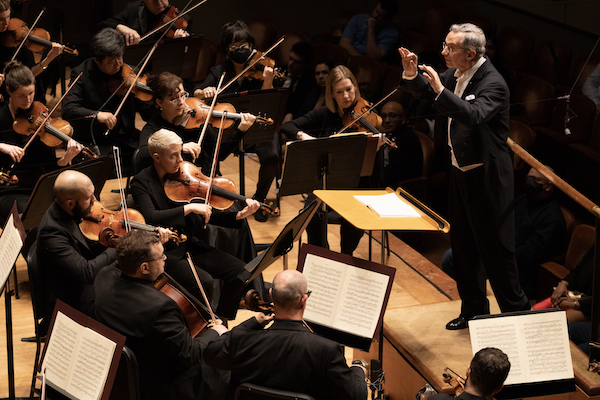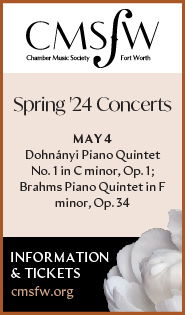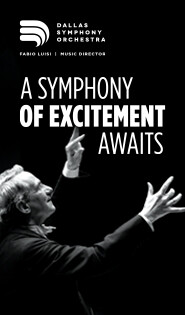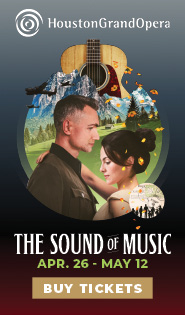Goerne conveys the dark and light of Mahler songs with Dallas Symphony

One week ahead of the Dallas Symphony Orchestra’s first tour in a decade, the DSO was reunited with music director Fabio Luisi for a program entirely different from what they will take to Boston’s Symphony Hall, New York’s Carnegie Hall, and Yale.
This weekend’s program, of Mahler and Brahms reflects the orchestra’s recording of the Brahms symphony cycle with Luisi (for the DSO Live label). It is ambitious to prepare two important programs simultaneously for a tour and for a recording, but Luisi must feel that the DSO is up to the task.
Mahler’s songs from Des Knaben Wunderhorn have a complicated compositional history. Mahler composed the songs, which are settings of German folk poems, over a period of ten years. He published twelve of the songs in 1899, then in later editions two of the twelve were removed and replaced by other songs.
Baritone Matthias Goerne performed eight of the fourteen songs with the DSO Thursday night. These songs vary markedly in tone, from the wry, sly “St. Anthony’s Sermon to the Fish,” in which the titular saint, lacking for a congregation, instead declaims his sermon to the carp, the crabs, and the cod. The speaker notes that the assembled aquatics listened raptly—but that they didn’t change a bit. Mahler creates a fishy melody in the clarinet (aptly performed by Gregory Raden) and strings to evoke the watery environment.

Also light in tone is “Rheinlegendchen,” sung from the point of view of a mower who imagines himself throwing his gold ring into the Rhine, where it could be eaten by a fish, who would in turn be eaten by the king, who would (somehow) return the ring to the mower’s absent sweetheart, who would return the ring to the mower in a loving reunion. In both of these songs, baritone Matthias Goerne, a frequent DSO guest, provided the just right rollicking mood, albeit with some distracting swaying, but also demonstrated very good control over his entire range. In “Rheinlegendchen,” particularly, Goerne displayed his clear, bell-like upper register, a nice change for a voice which tends to be dark.
Most of the other selections from this weekend’s program are heavier in expression. “Das irdische Leben” (“The Earthly Life”) is about a child who starves to death, and “Revelge” (“Reveille”) and “Der Tambourg’sell” (“The Drummer Boy”) are both about child drummers who die, the former in battle and the latter by hanging, as an apparent prisoner of war. Goerne rendered these settings with an aptly darker tone, and heavier expression to match the clacking bones of the col legno strings in “Reveille” or their wailing despair of “The Earthly Life.”
Thursday’s performance of Brahms Symphony No. 3—the most difficult of the four to pull off— proved competent but not compelling. String ensemble was far better than it has been lately. But tempi in the middle movements often seemed hurried, resulting in too little contrast with the faster outer movements, while dynamics were frequently exaggerated. The orchestra is ably providing what Luisi seems to be asking for; it’s just not entirely clear why he’s making the choices he is.
Attendance was thin Thursday evening, probably because of torrential rain, hail, and tornado warnings in the area.
The program will be repeated 7:30 p.m. Friday and Saturday. dallassymphony.org


